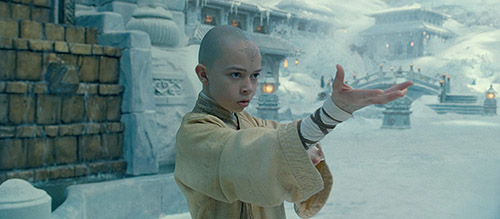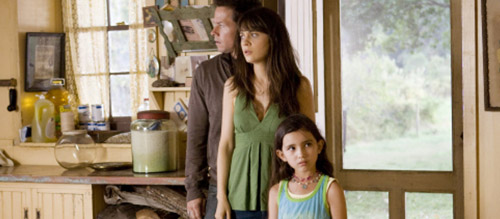M. Night Shyamalan Directed Movies Ranked
There are few filmmakers who have hit the heights that screenwriter-director M. Night Shyamalan has reached over the course of his quarter of a century in cinema. His work, from his sophomore feature The Sixth Sense through Unbreakable, Signs, The Village, Split and beyond, has made him one of the most talked about, most critiqued, and most noteworthy filmmakers of his generation.
During his career, Shyamalan’s art has amassed hundreds of millions of dollars in box office takings, two BAFTA nominations and two Oscar nominations, his well-known narrative-warping twists making for some of the 21st century’s most rewarding experiences and, from time to time, some of its most dumbfounding.
Whether you watch a Shyamalan piece for the greatness of his best constructs or the hilarity of his worst, you can always guarantee that a Shyamalan movie will aim to be the absolute best that it can be.
In this edition of Ranked, we at The Film Magazine are pitting all of M. Night Shyamalan’s directorial efforts against one another and judging each in terms of artistic quality, bravery, critical reception and public perception, to judge which are the most unmissable entries into Shyamalan’s filmmaking canon. These are: the M. Night Shyamalan Directed Movies Ranked (from worst to best).
Follow @thefilmagazine on Twitter.
14. The Last Airbender (2010)
M. Night Shyamalan’s career hit rock bottom with The Last Airbender in 2010.
This big budget adaptation of the famous Nickelodeon animated series ‘Avatar: The Last Airbender’ was awash with mismatched editing, terrible CGI and a frightening lack of visual and narrative logic. Add to that its insistence upon delivering twenty-plus episodes of backstory in just 2-hours and the result is a film filled with the most awkward and unnatural dialogue exchanges you’re likely to ever see – it seemed Shyamalan and company could think of no better way to introduce characters other than for them to simply say their names, histories and motivations in their introductory lines.
Criticised by everyone from fans of the original series to newbies, The Last Airbender also woefully tiptoed into racist territory, the film choosing to cast white actors as heroes (despite the original series’ ethnically diverse cast) and people of colour as the villains.
It truly was a low point for Shyamalan in a period of his career filled with monumental misses – this being the most egregious.
13. The Happening (2008)
Coming into The Happening in 2008, fans of M. Night Shyamalan’s career had already had their patience tested a few times, but if ever there was a jumping off point it was here.
Described by movie parody YouTube channel Honest Trailers as “one of 2008’s best comedies”, The Happening was a film that delivered so poorly on its premise as an environmental horror that it is now best remembered for the countless memes it has generated.
Mark Wahlberg – “What? Me? No…” – offers a career low performance, and Zooey Deschanel looks like she doesn’t even know where she is, but neither of them ever had a chance at delivering the most amateur dialogue of Shyamalan’s entire catalogue.
In The Happening, Shyamalan seemed to reach his peak in terms of control, and the result was one that demanded his influence on future projects be better managed. It took 7 years for him to write another original screenplay (The Visit) and even longer for him to somewhat repair his reputation as a director, this failure almost destroying the legacy of this once great filmmaker prodigy.
Recommended for you: Bong Joon-ho Films Ranked



